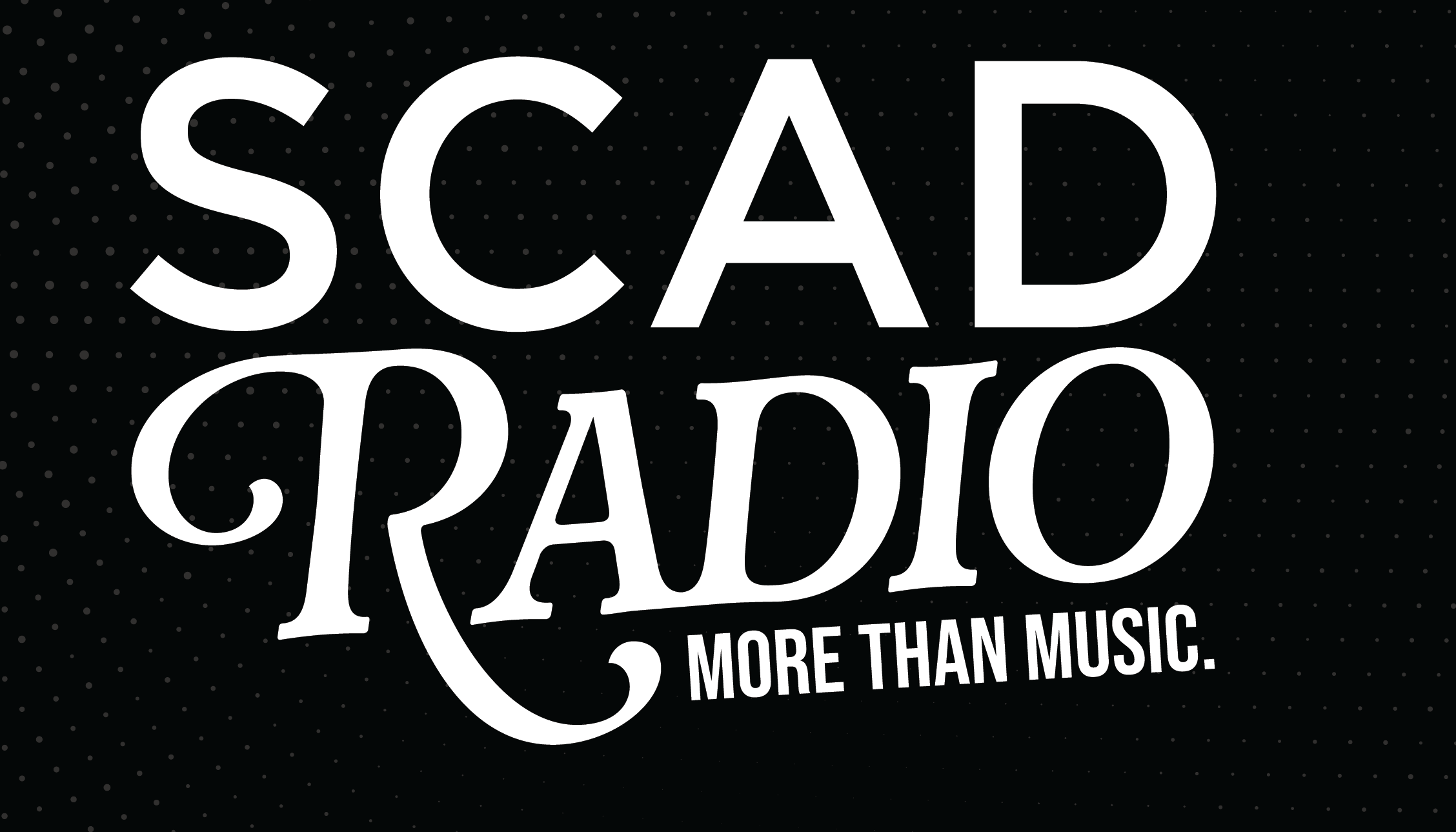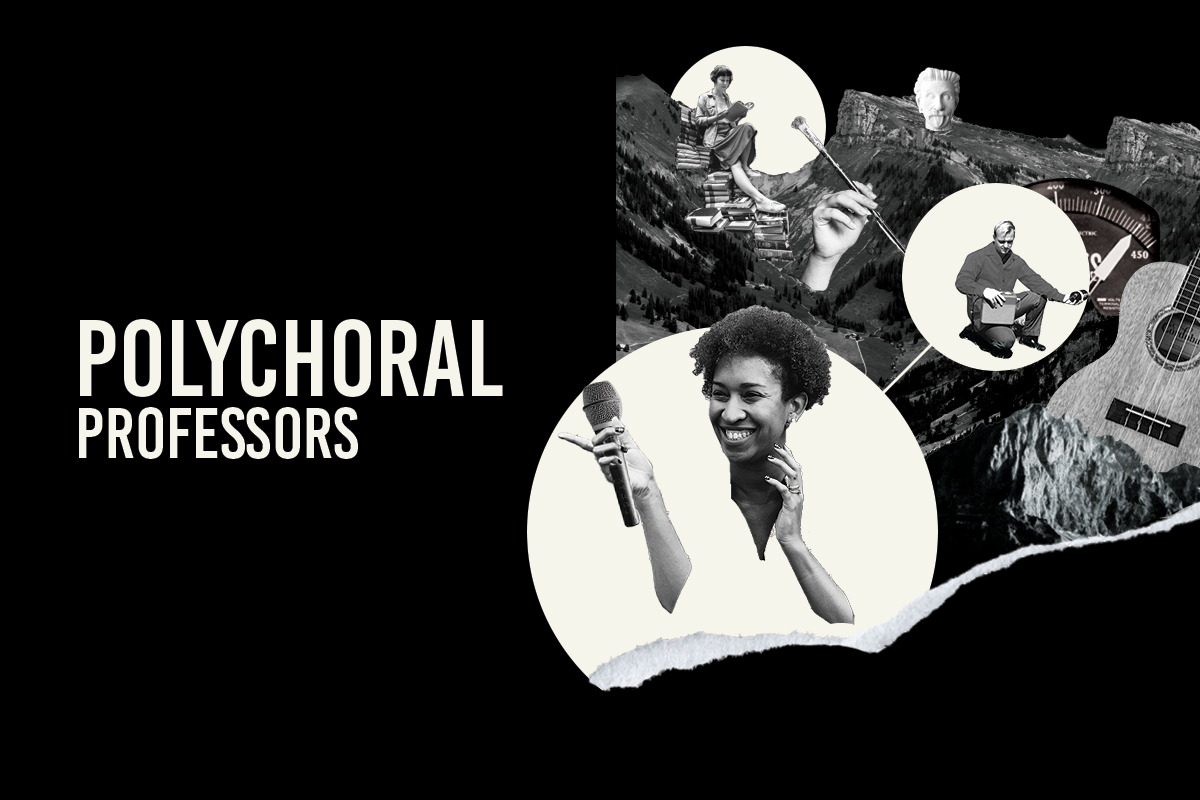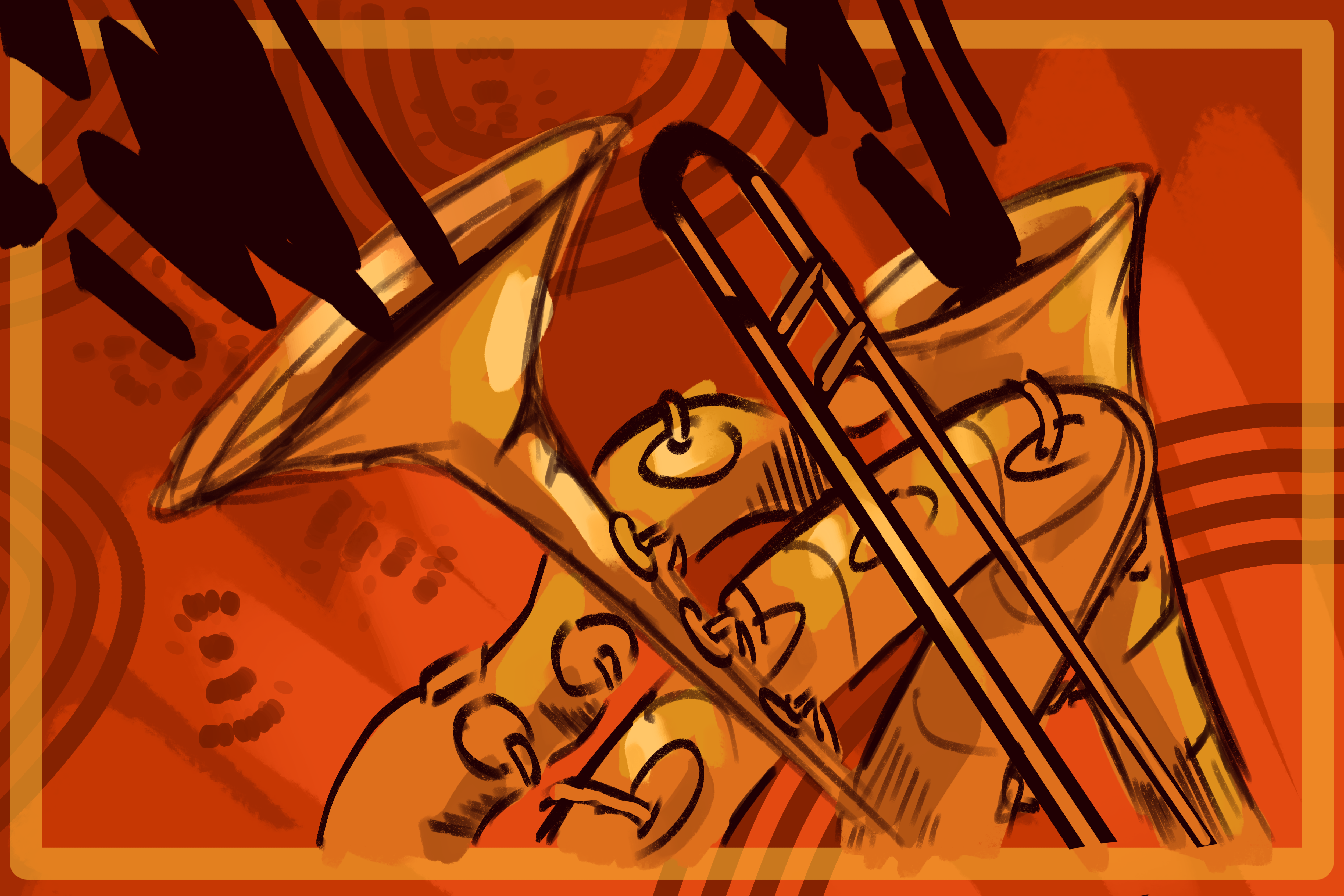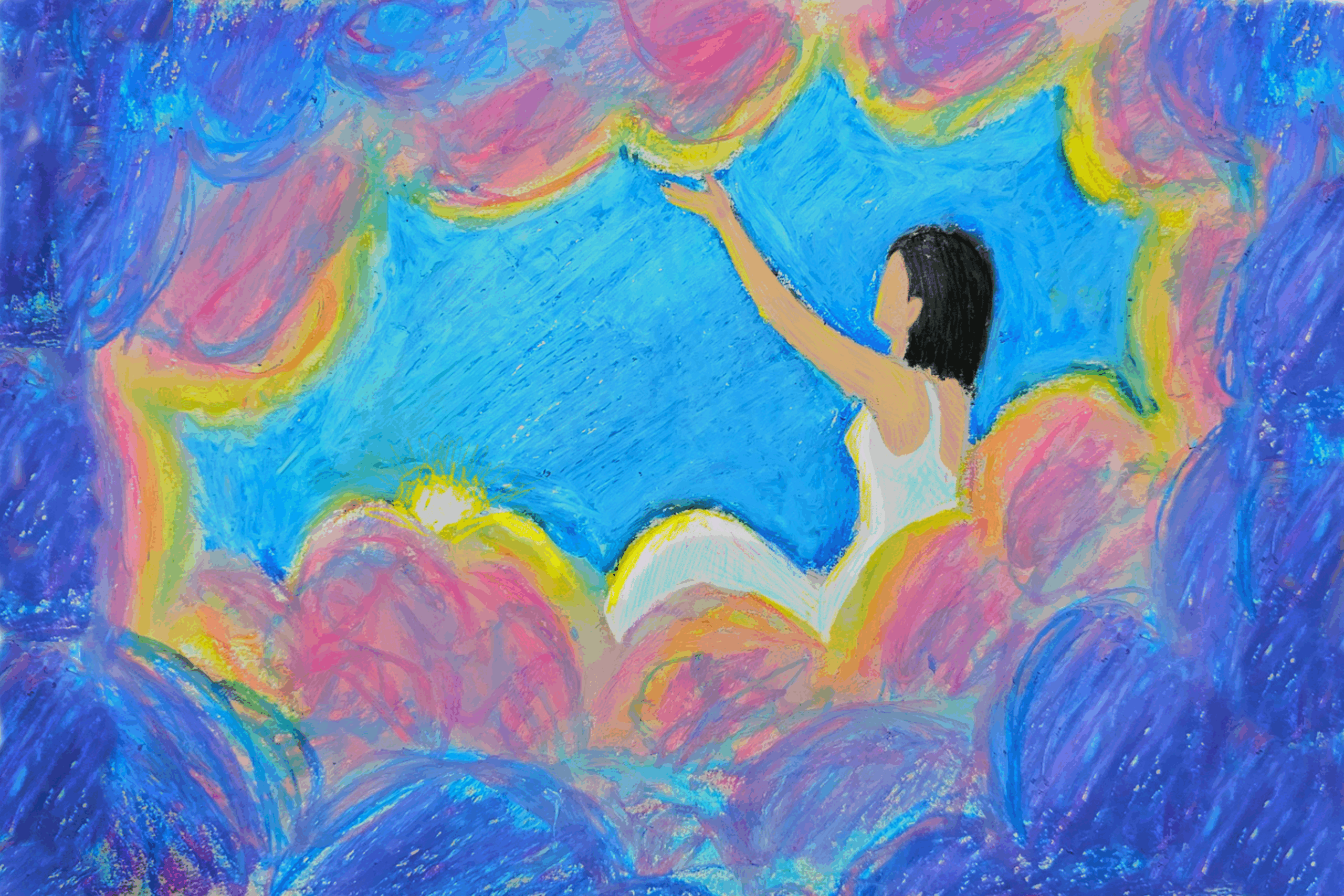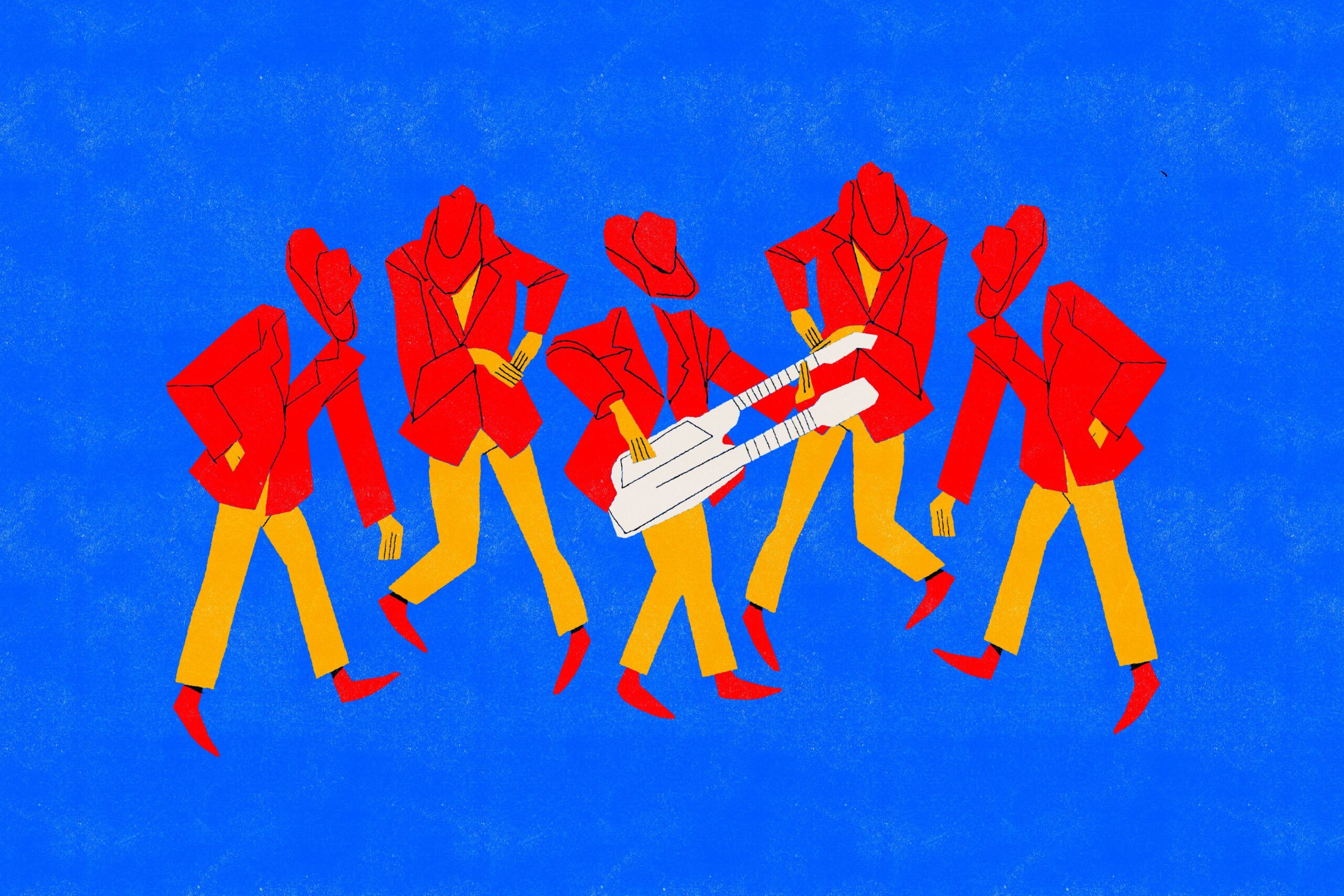In Polychoral Professors, a new SCAD Radio series, students have conversations with their professors about music, listening habits, and more. Check out some of his Professor Schroth’s playlists here. Listen to the Podcast version of the interview on Soundcloud here.
SCAD Radio: Before this discussion, you mentioned in your email that you listen to music in a different way, so I was wondering if you could expand on that.
Peter Schroth: I drifted from music like going into the late 80’s and for almost the entire 90’s is just this blank in my music listening. It had to do with circumstances in my life and just personal preferences. I was living in New York City and basically consumed with surviving and I didn’t follow music, you know, that’s a term that we use now. I just listened to the radio and on the radio in New York, we had a range of alternative or independent stations. So you could find music, a little bit different than standard commercial, whatever, but it was background, whatever it was. Classical, progressive, whatever jazz at midnight, but I didn’t–I wasn’t attached to it. It was just to fill the air.
And then I landed at SCAD In the early 2000s, 2005 and I still just would listen to the radio, such as it was here and there. And then when I was teaching, I noticed in the classrooms here at SCAD everybody played music. And I was like, “What is this, a disco?”. I mean, I was sort of old school–like silence reigns. And I did have a bit of an attitude about it. Until one spring quarter–you know, I teach color theory and most people are done with color theory by winter. The spring, if you get color theory students, it’s like this small little class–five, four. I had this one class. It was so quiet that you could hear the lights in the hall. And it was a little bit more than I could stand! It pushed me to my limit. And I just ran out into the hall and I grabbed a colleague and I said, “Can I borrow your boombox?”. That was when we used to listen to CDs and things on this little boombox, and I grabbed some of their CDs or whatever.
And maybe it was that something had been starved inside me that I didn’t even realize until I was put back in touch with it.
It’s funny–the classroom brought me back to music. And so it can’t be understated how significant that was. So, within like a week I was–this was still when iPods and acquiring music online,that was just developing. So, Mr. Old school. I would still head out to Barnes and Noble and I’d go through the CDs and you could listen to things, you could sample music. So very quick I started to acquire music and it just brought me in touch with that whole realm which I had just kind of ignored for so long. And maybe it was that something had been starved inside me that I didn’t even realize until I was put back in touch with it. Well, it got to be where every weekend, where was I? I was at Barnes and Noble sifting through music.
I mean, I looked at the music that was in my head that I was interested in but in the background was always the classroom. The music became part of the classroom environment. And I was always listening with an ear for the classroom and I still would buy whatever I was interested in, but there was always that other audience that I was aware of. It got to where, the music, right. It just was like somebody flipped a switch and it spun 180 when you came from silence to “Can we put the music on now?”. It was like the classroom was a place to listen. It became that and I started to joke that I taught so that I could listen to music. I mean, it went to that extreme.
Just as recently as a year ago and I can remember the day the music died. That was when I dropped my iPod for the last time. If you recall, Alex, I couldn’t play any music for the last few weeks and it comes up in critique when your classmate James says “Well, If you want to fix something you need to fix that music situation”. But it became so important.
And so what I was getting at, was now like in the last six months I’ve started to make separate playlists that are just classroom. I used to be able to just pull from my lists. But now I have classroom playlists. And curate might be a bit too big a word, but I put them together for the classroom. There’s a sense of what is more appropriate or less appropriate and what the students might like.
And I think it’s also, it’s been this exchange going back just almost to the earliest days I started playing. I’d been to a conference with students and I say, so would you like to tell me about the class, you know, they’d say, well, “Where do you get your music?”. And I was like, “Well, we can talk about that but we’re supposed to talk about your grade”. It became this other place for you to connect with students and also in my case, I’m a few decades older than most of you–to be able to make contact with 18 year olds on this other level that had nothing to do with the work we were doing. But it was this other thing that we all enjoyed it.
So I have all of this international pop from the 60s and 70s, and it’s funny. I’ve had students who are now, you know at SCAD, we have this international student body. I had a student from Greece, just like two quarters ago. She said, “I can’t believe you know this music that my grandmother listens to”. By this time, I know the artists, you know, I know years and I’m not one of these–at this point–I’m not a nerd about details but you do absorb this and I could name some of the artists and she would just shake her head. She thought it was amusing and enjoyed it. But I had a student from India, and I was playing some old old Bollywood, and she was like, “That’s what my dad listens to!”. And so you’re not only connecting on music but it goes to, like, another level. You go into their lives, into their past and so that becomes fun. I even got some contemporary pop from Algiers and it’s like, “I can’t wait until I get an Algerian student,” you know. But so my sense of music–I enjoy it for itself. And I have that appreciation.
“Your class is really hard, but it’s worth it for the music.”
But I also think in terms of how it might make an impression on this other group of people who I’m so fond of. There have been things like this list of anecdotes. I had a student a couple years back where he said, “Your class is really hard, but it’s worth it for the music.” But that was precious, you know, and then just this quarter, there was only the second class period of students who are all on Zoom now and I learned how to play, of course, I had to figure this out right away–how to play music through zoom so that the sound is better, but it was only the end of the second class period [a student] sent me a chat, she said “I’m really enjoying this class, and I love your taste in music”. So this little thread, it matters a lot because I’m thoroughly attached to teaching. I love music and the connection it brings, but I love, I love variety, I love international, Latin, in particular, and I just keep trying to branch out.
At this point, I don’t think I follow music in the way that people usually mean that, it’s following in the most general terms, but it’s more like an active hunt that I used to be more involved with at the beginning–this has tapered off. I’m not starving anymore. And so now it’s more like, I just keep my ear open like I’ve literally walked down the street in Brooklyn or wherever, and you hear some guys playing something over here and I open up my Shazam and check it out or pick up suggestions from my students who are always making suggestions. Or nowadays too you’re watching a movie or some Netflix drama or whatever and there’ll be soundtrack music. Some of it will just put the snippet, something else might be a titles tune. But I take note of that. Because often that comes from places and it can lead to another world.
Like there’s an independent film, from I guess the 90s was called Morvern Callar female director [Lynne Ramsay]. The soundtrack of the movie was integrated with the storyline. But in any case, it was almost all this sort of obscure electronic music that I wasn’t really familiar with. It was all like Boards of Canada and Aphex Twin and people of that sort, and it turned my attention that direction. And so a year later I’ve got deep into all this electronic and so I do like stretching way out. I just enjoy that. But now it’s more just–you pick up a tune here or read an article like I did in the New York Times just a few weeks ago about the new young, hot ticket from South Africa named Burna Boy! And so I’ll go and listen. An older musician will die and there’ll be an obit and it’s something maybe you haven’t heard. Often now I’ll go on the e-version of the Times or whatever, maybe there’ll be links to music and you can listen. So I pick up things on my daily travels and it’s more like that.
It’s all selected. Everything is selected.
So a tune there, a tune here, but also my library is as big as it is at this point. It’s probably not like some people–tens of thousands–I probably have at least a few thousand. I know what most of all of it is you know I don’t just pack. You know, somebody will say “Here’s, you know, my playlist”. And I won’t just dump music into my library. It’s all selected. Everything is selected. It’s still I take on care with what goes in and things go out, you know, over time, it’s like “that wasn’t as good as I wanted” and I pull things out here. I like to read it. It’s a garden. Anyway, you can redirect me or I’ll keep rambling.
Radio: During the summer, do you continue to listen to music on your own, or is it kind of like taking a break from listening?
Schroth: No, I still listen. It’s more a part of my personal daily life than it was for a long time. It used to be I would listen to music in the classroom, but not so much at home. Well, now especially with, you know, the Covid situation and the long summer at home it’s different. But, with or without that aspect, it’s gotten to be where music is now it’s own activity once again, where usually I try to free myself of all business by five or six o’clock, whether it’s school business or personal work, whatever. And I just stop. I sit down in my big comfortable chair and I put on music. I might do something like I have certain books or magazines that I like to look at. Music in the evening, that’s become a routine thing. And so it is something that has its own time. I do whatever I like, but it’s not work related, and I just listen to music.
Radio: It’s a different experience when you are attentively listening to music versus just having it on in the background, and you seem to have found a way to do that devoid of physical media.
Schroth: I do feel as though I have been unburdened by CDs and digital music, you used to have to worry about your records warping and scratching and they would weigh a lot when you had to move. I’ll admit, I mean with all due respect for the preferred sound quality of vinyl, I love the convenience of digital music–it’s made it all easier and it’s something that I know took me a while to make the switch, but you can so quickly find something that you maybe heard about or you can just encounter things. The ability to find music, whether you’re looking or not is just so much easier. And we don’t rely on the radio. I haven’t listened to the radio in ten years. It’s like, you know, I don’t watch TV and I don’t listen to radio–there’s so many other ways to find music now.
Radio: I’ve actually grown up listening to the radio. One of the major reasons why radio has been so important for me is that my car back home is very old and it does not have a CD player. It doesn’t have a cassette player–just the radio so–
Schroth: You have to turn the dial and everything.
Radio: Yeah! So I have to listen to the radio, and a lot of times I’ll listen to NPR. Even then, they do have really interesting music programs. They have Live From Here, which is a bluegrass radio play type of show.
Schroth: Yes, that’s a good thing, a good radio show, a good DJ–that certainly is a way to find music. Back when I was still in Brooklyn–well I am still in Brooklyn part-time. But when I had my studio in Brooklyn, I used to listen to some pretty significant radio in the city. I haven’t done it so much lately but online you have things like All Songs Considered or these various music programs, which again, not too long ago, I used to check in to regularly or I used to listen to WNYC and they have various music programs that are either on air or online. And I haven’t done it as much lately but once a month. I just go into the archives, sample things and see what’s going on. I’ve drifted a bit. But yeah, I should not hoo-hoo radio.
Radio: With the internet, it is easier to find music. And I think that digital listening, even though I really enjoy having records, I’d say that it’s still pretty imperative to my search for new music and even just the convenience of having music with me all the time. Sometimes I feel like I listen to music too much, like I’m not precious about it.
Schroth: Yes, I understand. I got my new car a couple years ago with the bluetooth sound system and if your phone is on you as soon as you turn on the engine it starts [playing music]. At first I was like, “Okay, give me a break”. But then I started to enjoy it and I caught myself enjoying it, and I said “I can’t be listening to music all the time”. So when it started to not function so properly I just let it go! You can go to the grocery store without listening to whatever! Well, also if I’m not in an enclosed environment like a building in a room, if I’m even on the back porch or walking down the street or on the subway or wherever to have music in your head is sort of disorienting or alienating. It sort of distances you from the environment that you’re in. These are not new ideas, I mean just in the last two weeks, I finally got my new back porch furniture. I have a just new environment that I can comfortably spend time in so now, any free moment I’m out on the back porch and one day I started, ” Oh, I’ll take my music”. You know, you’ve got the sound, whether it’s the breeze, the traffic, or the birds–the music did not belong there. It’s like, “No, if you want to listen to music you go back inside”. You’re outside–you enjoy those sounds, because it is about sounds. Not to be preachy about it, but I’ve just had to realize, once again, that no, this isn’t the environment for music listening.
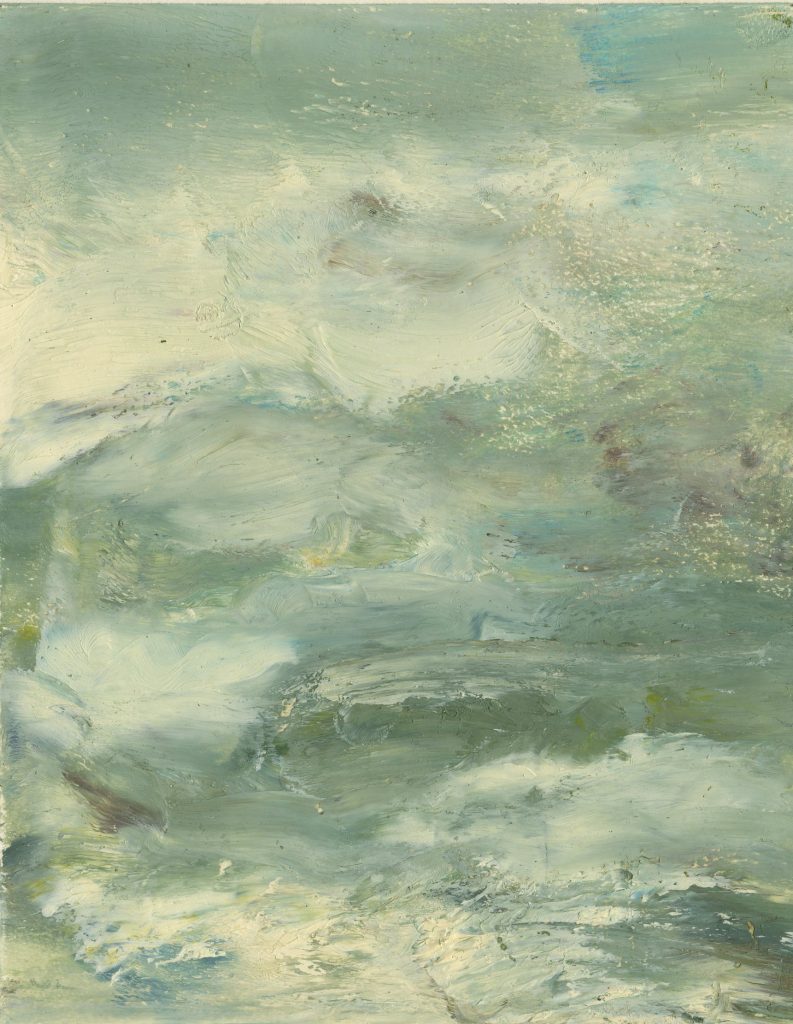
Radio: Do you think that the music you’re listening to music has any ties to your artistic practice?
Schroth: No. And I like the fact that they’re completely separate and that’s nothing now. Well, I’ve done all different kinds of work over the ages. Well, talking about NYC–what I preferred for all of my ages in New York, I would listen to public radio and I would listen to news and information from 8 in the morning ’til nine at night, and that was what I enjoyed for that. And I’ll listen to music another time. And there is that thing about savoring music as much as I enjoy music, under any circumstances, I’ll take my news when I’m working.
It’s weird to be sitting in the woods by a brook listening to Neil Young.
Music is after work, you know, and also so much of my work now is really outdoors. I can remember, I think I went through a period when I was doing some outdoor work, and whether you’re painting the side of the house, or working on your artwork–and I don’t know how it is for other people–but my head sort of fills up with voices, whether it’s somebody you’re dealing with at work or from the past. It’s like it’s almost like this quiet space gets filled with these voices, say, thoughts and things there. And I went through a period where I think I took my headphones and I started listening to music, because it would shut out these things that would come into my head, but at the same time it’s weird to be sitting in the woods by a brook listening to Neil Young. They just–they don’t go or whatever it is and I stopped doing it. And I just deal with the clutter in my head. I think this past summer I was out three or four days a week and I never took music. And I thought about it, but I think I’ve learned how to deal with this. That static in the blank while I’m working and just focus on the job. So it’s come back to your question. No, there is no relationship and I’m aware of between music and my work. And that’s just fine with me. Two separate things.
Radio: When a lot of people talk about music, they talk about their favorite artists and specific people and they get kind of caught up in the celebrity of their favorite musician and who’s on the album cover. But you don’t really talk about specific artists very much, you’re more interested in just what you enjoy listening to rather than getting caught up in the narrative.
Schroth: No, I have no favorite tunes or favorite people, just music in general and no, I don’t have favorites and I might have a favorite of the week but with the understanding that it’s fleeting.
When you’re younger your music and your favorites…are part of your identity and you represent yourself with who you’re listening to, who your favorite is. It’s like a flag.
And favorites, they almost don’t relate to the idea. Favorites. I understand it, but it doesn’t hold meaning for me now. And I think when you’re younger your music and your favorites whether its music or art–it’s like part of your identity and you represent yourself with who you’re listening to, who your favorite is. It’s like a flag. This is very, I think this is natural and kind of important when you’re younger. Now, I remember these anecdotes about the Rolling Stones when they were like 16 years old. “Yeah, there’s this guy Mick who lived down the street, who would listen to blues,” and they said, “You listen to blues?” Like when American blues was this obscure music and only a few people were in the know. And that’s another thing, being in the know. It’s a place where you connect with people over what you listen to. When Led Zeppelin first appeared, it was me and three other guys listening to them. That mattered. Your world just gets so big that favorites have no place in it. At least they don’t for me. It’s personal.
Radio: That makes me think about subculture and how with the internet, it’s kind of hard to have a concentrated subculture like there was more so in the past.
Schroth: Yes. Everything is above ground.
Radio: Everyone can kind of have their own little niche. There’s no one overarching subculture because through the internet you can find anybody, anywhere that is engaged with your particular taste. But it seems like you kind of have the “death of the artist” sort of approach to listening–like context doesn’t really matter. You just pick the song for what it is.
Schroth: This is true. And it’s not that there isn’t an appreciation for the artist but yes I don’t acquire a body of work by a particular performer or musician. It will be this or that tune. Death of the artist–that’s so extreme I won’t just come along with that, but I do understand it’s a way of making a point and I can remember an interview with–oh it wasn’t Lena Horne–it was one of those older jazz singers and the interviewer said, “Does it matter who the songwriter is?” She was like, “No! I just go for the tune that I like and that’s that!” and I can remember thinking, “Hoo! That’s a bit dismissive of the artist”, but I understand, and it’s a version of what you’re mentioning. I go for it’s the individual tune that speaks and the artist can be well represented by a couple things and we all produce all this material, not all of which is the best. And of course, my favorite tune by so and so may not be the top 40 hit, but sometimes for myself that’s all I need to and I look at my own work with each body of work, especially when you look back in two years and I can get rid of most of but say two from a period. And I use that to represent myself.
Radio: I think there is something to being an artist where you just have to produce, you know, and I’m sure that’s true for musicians too, just to find what is good and what is worth keeping.
Schroth: Yes. Yes, you do. You have to, you have to do.
